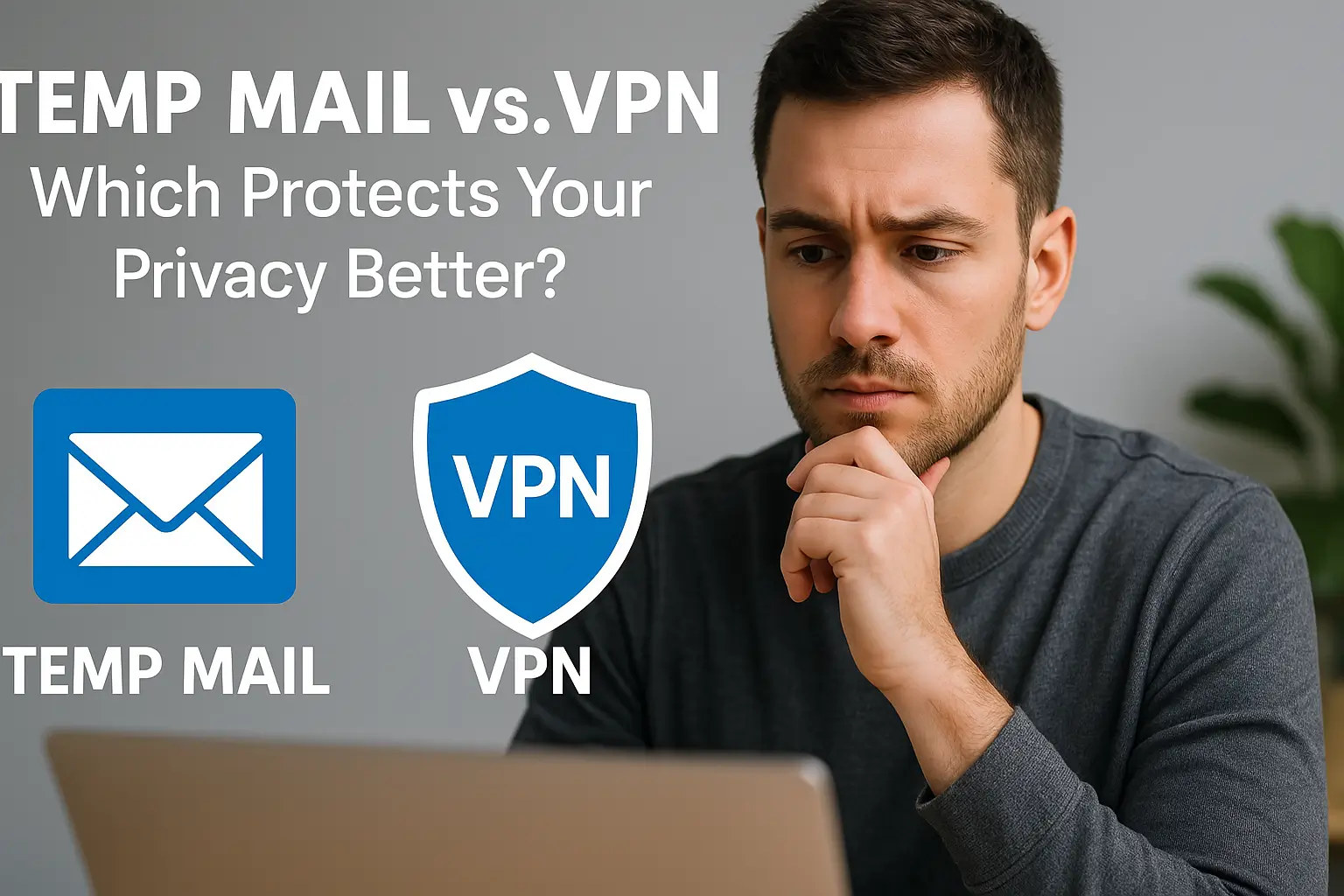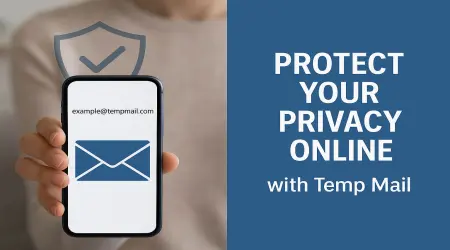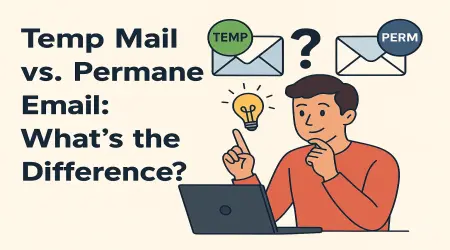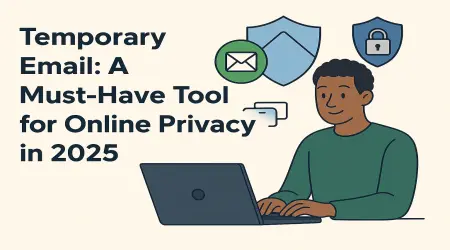

Temp Mail vs. VPN: Which Protects Your Privacy Better?
In this age of increased connectivity perhaps never seen before, information about a person is now treated as money and everyone turns over their details with terrifying sloppiness. Digital breadcrumbs are left behind every action to read the newsletters, gaining WIFI access, etc. As a result of this trend, the use of more temporary inboxes, Virtual Private Networks and anonymous browsing programs is picking up momentum. But it is with precise knowledge of their working mechanisms that one will be able to answer the question of which defenses are in fact protective of privacy.
Temporary Inboxes
The most widely adopted defense is the disposable email address—often tagged “tempmail” or sited at tempmail44.com. This service provides the anonymity as it offers one time using email account which is auto-deleted after a given duration of time. Such speeches serve very well to:
• permit registration without the need to provide a permanent residence;
• avoid spams and unsolicited mails;
• maintain individuality.
tempmail44.com distinguishes itself through simplicity: landing on the site immediately generates a functional address that may be copied directly into online forms.
Virtual Private Networks
The temporary inbox box can only safeguard individual communication channel where the VPN offers an overall coverage. A VPN draws a secure pathway between internet and a gadget by encoding all the information packets and hiding the sending IP address. There are several benefits associated with this architecture:
• the security of data against the questioning that can occur in the external network;
• of hiding geographical location;
• circumventing geo-blocking and censorship of the content;
• reduced exposure to the Internet Service Providers or advertisers.
To have utter anonymity and security, a VPN is a must.
Computer security to both temporary inboxes and Virtual Private Networks improve on the privacy of the digital data, still they serve different needs. Short term inboxes meet the immediate requirement to prevent the release of a single email address; VPNs defend an entire communications chain and greatly lessen the possibility of personal identification.
Temp Mail versus Virtual Private Network: Which Provides Superior Protection?
These two services can be regarded as similar, but there are some considerable differences. They are presented along with each other, and they show non-conflicting roles.
Defense of Personal Information
Temp Mail excels at safeguarding email identities. By employing a throwaway address from tempmail44.com, users verify site accounts without risking inboxes saturated with spam.
Although sufficiently able to encrypt Web browsing, VPNs do not necessarily protect email activity or inboxes.
The Anonymity in All Connections
VPNs interfere with all the data packets that a user sends out and make complete anonymity on the internet perfectly possible.
Temp mail addresses safeguard only the inbox; the rest of Web activity remains unencrypted.
Installation Complexity
Temp email accounts are instantly available and require no software; simply visit tempmail44.com.
VPNs tend to need software downloading and a subscription fee which often needs to be paid regularly.
Survival of the Shield
VPN is always present during the enabled connection, ensuring constant anonymity.
Temp email accounts expire after a limited period, best suited to brief, one-off anonymity.
Historical Context
The following scenarios favor using a temp-mail provider: registering for free trials or newsletters, downloading a single software release, bypassing mandatory logins on blogs or tools, or creating temporary accounts for forums or games.
A VPN is on the other hand required when on an untrusted network at an airport or coffee shop, streaming responsibilities into an overseas government, online banking, or sharing of confidential files or defeating government censorship or firm firewalls.
The two tools are useful, however, in different spheres.
Employing a temporary mail service and a virtual private network at the same time is a very practical and well-advised decision that would help to protect the online privacy of a user to its fullest. Tempmail44.com enables anonymous account creation, while a VPN secures communications by encrypting network traffic. The combination of these options will provide the same level of defense of the old armor and absolute invisibility everything is so that the user will not be in danger of discovery, and everyone will not notice it.
Using Tempmail44.com Step by Step
1. Navigate to tempmail44.com.
2. Take and copy the randomly made email address.
3. Use this address when you are registering in any site.
4. In the inbox, look at the confirmation links.
5. Repeat as required to make later registrations.
6. The inbox of the email is automatically purged after a certain specified span of time leaving no account to keep control of, or delete.
Is Temp Mail Safe? What About Tempmail44.com?
Temporary mail services such as tempmail44.com never collect personal information, store IP addresses, or retain data. The system can only receive incoming correspondence, it does not support sending of emails. Some online platforms may block addresses originating from disposable email providers like tmpmail or tempmail, so results may vary.
Temp Mail and VPNs: Common Myths
| Myth | Reality |
|---|---|
| Temp mail is illegal | ❌ It’s totally legal to use tempmail44.com for privacy |
| VPNs make you invincible | ❌ VPNs help, but don’t replace good habits (like avoiding sketchy sites) |
| Temp mail is only for hackers | ❌ Nope. Everyday users use tempemail to stop spam and keep their inboxes clean |
Both tools are for privacy, not secrecy—and using them is smart, not shady.
In order to protect the digital presence, the described procedure can be suggested:
1. Employ a temporally disposable email address obtained from tempmail44.com whenever a website requests a personal email address.
2. Join the internet only using a secure Virtual Private Network especially on the public networks.
3. Avoid sharing personal information with people—either birthday or home address etc. through online medium.
4. Empty cookies and the history in the browser frequently to reduce the number of tracks left online.
These practices, in sum, make online activity and the identity of a person less prone to unauthorized observations and manipulation.










